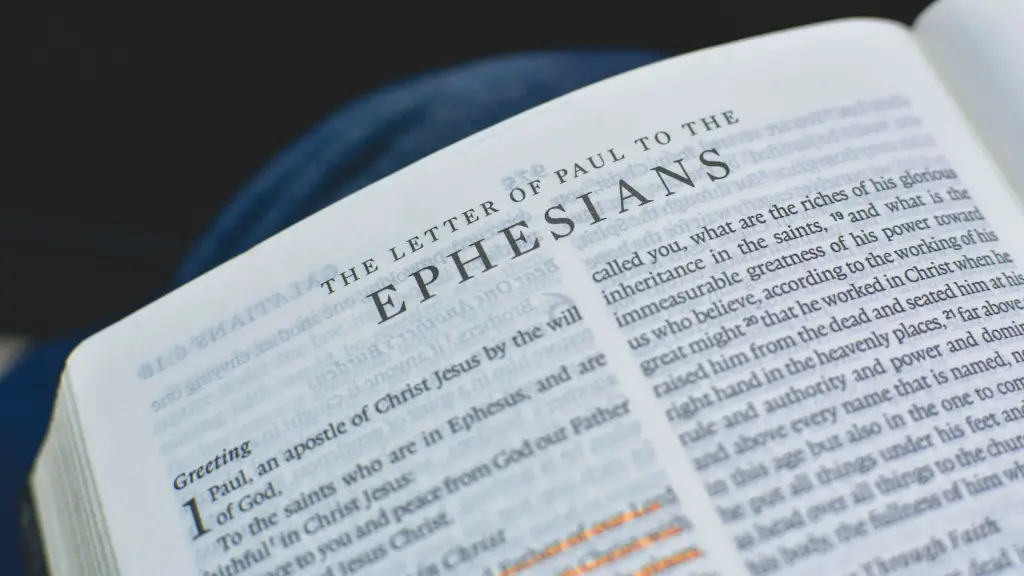The Canaanites are a people known from the ancient Near East who lived during the Bronze and Iron Ages. They were one of the main powers in the region during the latter part of their settled existence, and are mentioned several times in the Bible. So, who exactly are the Canaanites in the Bible?
According to the Hebrew Bible, the Canaanites are descendants of Canaan, the son of Ham and a great-grandson of Noah who, following the Flood, was cursed by his father to become a generic term for the various nations living in the land of Canaan. This is why they are referred to as the “inhabitants of Canaan” and a people who were cursed by God to wander the earth, referring to their scattered settlements throughout the Middle East.
The Canaanites were a seafaring people, who traded with surrounding nations and sought to benefit from their political clout. They often fought with their neighbours, and the Bible notes that Abraham and Jacob made peace with them before eventually settling in Canaan. The region of ancient Canaan was at times under the rule of the Egyptians, Philistines, Assyrians and Babylonians, but the Canaanites had a degree of autonomy throughout their tenure.
The Canaanites were a polytheistic culture and their religion was based on the worship of many gods, often referred to as Baal or El. Though some of these gods had similar characteristics, they were each considered to be distinct and special. Furthermore, the Canaanites embraced magic and the occult, which was condemned by the Israelites. They also practiced human sacrifice, a practice that the Hebrews abhorred.
The Biblical accounts suggest that the Canaanites were an established and powerful force to contend with. They were a nuisance to the Israelites and were often viewed as evil and corrupt. This is largely because the Canaanites refused to convert to Judaism and, as a result, were often attacked by the Israelites who viewed them as idol worshippers. Nonetheless, the Canaanites and their way of life has helped to shape the world we inhabit and the Bible-driven ideas we live by today.
Religion and Practices of the Canaanites
The most important religious practices of the Canaanites were the worship of the gods, the use of magic and the practice of human sacrifice. Although the Canaanites had many gods, their most important deity was El, who was seen as the creator of the world and the giver of laws. Other important gods included Baal, El’s son, who was god of weather and fertility; Asherah, El’s consort, goddess of love and war; and Molech, god of sacrifice.
The Canaanites also had a rich mythology. This included stories of wars between gods and people; tales of creation and destruction of the universe; and the belief in an afterlife where deserving people would be rewarded and those in the wrong punished.
In terms of practices, the Canaanites relied heavily on magic to accomplish their goals. This could range from medicinal healing to prophecies about the future. It was also believed that prophets could foretell the future, and magical incantations could protect people from harm. The practice of human sacrifice was also prevalent, and in some cases was used as a form of retribution for the gods who had been wronged.
The Canaanites’ beliefs, rituals and practices often clashed with those of the Israelites who, under Mosaic Law, condemned the worship of other gods and banned magical practices. As a result, tensions often arose between the two groups, leading to periods of war and conflict.
The Rise and Fall of the Canaanite Empire
The Canaanites had a long and tumultuous history. Their rise up the ranks of the Ancient Near East came with the formation of a powerful empire, known as the Kingdom of Ugarit, around the 13th century BC. This kingdom prospered for centuries and even established trading outposts as far away as Hattusa (modern day Turkey).
The Kingdom of Ugarit exerted a considerable amount of power throughout the region and was even capable of repelling such powers as the Egyptians and the Philistines. However, the kingdom eventually fell in 1185 BC, at the hands of the Sea People invaders. This marked the end of the rule of the Canaanites, though the people still existed in the area.
Following their demise, the Canaanites continued to exist in parts of the Ancient Near East and beyond, but would never regain the power and influence they once had. The remnant of the people would eventually be subjugated by the Babylonians and Assyrians, though echoes of the culture and beliefs of the Canaanites remained in the area even centuries later.
The Legacy of the Canaanites
The Canaanites of antiquity left a lasting impression on the people who came after them. Though they were eventually forgotten and became a footnote in history, the Canaanites still had a great deal of influence on the culture and beliefs of their successors.
The religion of the Canaanites formed the basis for the Judaism that was practiced by the Israelites and is still practiced today. The mythology, stories, and beliefs that were held by the Canaanites can be seen in the Old Testament of the Bible, and many of their gods became part of the religious pantheon of the ancient Mediterranean.
Moreover, the Canaanites also have a lasting legacy in the geography of the Middle East. Many of the cities and towns that were established by the Canaanites are still in existence today, including Sidon, Tyre, and Ugarit. The Canaanites also had an impact on the language of the region, with many of their words being integrated into the existing Semitic languages.
Canaanite Archaeology and History
In recent years, archaeologists have been able to shed light on the history of the Canaanites through their excavations of sites throughout the Levant and Anatolia. These have revealed the existence of monumental palace complexes, which are indicative of the power and influence of the Canaanites in the region. By studying these sites, archaeologists have been able to learn more about the culture and beliefs of the Canaanites.
The study of ancient texts has also been revealing for gaining insight into the history of the Canaanites. Ancient clay tablets written in the Ugaritic language have been found in the ruins of Ugarit, and these have been instrumental in understanding the culture, mythology, and beliefs of the Canaanites. In addition, the Bible has been useful in learning more about the relationship between the Israelites and the Canaanites.
Modern Representation of the Canaanites
In modern times, the Canaanites are often portrayed in a negative light and are associated with paganism and idolatry. This is a result of the Biblical accounts, which depict them as an adversary of the Israelites. Despite this, there has been an effort to re-appraise the Canaanites in a more positive light, placing more emphasis on the influence they have had on history.
Today, the Canaanites are viewed as a dynamic people who shaped much of the culture and beliefs of the ancient Near East. As such, there has been a growing interest in understanding their history and culture. Archaeological sites, such as Ugarit, have been explored and discussed, and ancient texts have been studied in order to gain more insight into the lives and beliefs of the people of Canaan.
Canaanites and the Bible
The Canaanites are frequently mentioned in the Bible and were an integral part of the history of the Israelites. After the Israelites grew in power and prominence, they declared war on the Canaanites, whom they viewed as a hindrance to the spread of the Israelite faith. This led to many battles and skirmishes, and the eventual decimation of the Canaanite population in the region.
The Bible also portrays the Canaanites in a negative light, as a people of idol worship and human sacrifice. Despite this, they were a people of considerable renown, and their influence extended outside of the Near East. The Canaanites have left an indelible mark on history and are a reminder of the ever-changing geopolitical landscape of the ancient world.
Conclusion
The Canaanites are a people of history, spoken about and referenced often in the Bible and ancient texts. They were a seafaring people who built a powerful empire and who, despite rising and falling, still left an impression on the cultures in the region. Through their practices, beliefs and legacy, the Canaanites have left their mark on the region and have had a profound effect on the world we inhabit today.





